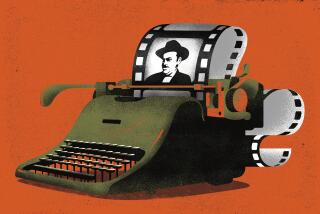TV REVIEWS : A Probing Look at ‘Orson Welles’
- Share via
Robert Guenette’s succinct and illuminating hour documentary, “Orson Welles: What Went Wrong?” (at 11 a.m. today and 7 p.m. Thursday on Cinemax) answers its own question with candor and compassion. What’s more, Welles, seen extensively on camera, pretty much answers the question himself.
Although Welles, who died at 70 in 1985, had lost both parents by age 12, he had a kindly, encouraging guardian and admits that while he was growing up he “never heard a discouraging word for years. . . . There seemed no limit to what I could do.” Yet by 25, after making his bold, revolutionary mark in the theater and radio and then movies with “Citizen Kane,” he was called the “world’s youngest has-been.”
He lost control of his second film, “The Magnificent Ambersons,” in post-production by going off to Brazil to make a documentary that turned out to be an ill-fated project in itself. “They destroyed ‘Ambersons,’ and ‘Ambersons’ destroyed me,” Welles remarks.
What emerges through Welles’ reflections, the observations of friends and colleagues and in Guenette’s estimation, is the sense that Welles finally was too protean, too idiosyncratic a talent to flourish in the old Hollywood studio system.
Welles says he made “The Stranger” (1946) to show that he could make a movie “like the other fellows” but that he recognized he was not really like them. For the rest of his life Welles would work as an actor to try to finance his own projects. By the time he died, he had completed 12 features.
Welles tells us that his life in films has been “2% movie-making, 98% hustling, and that’s no way to spend a life.”
More to Read
The complete guide to home viewing
Get Screen Gab for everything about the TV shows and streaming movies everyone’s talking about.
You may occasionally receive promotional content from the Los Angeles Times.





